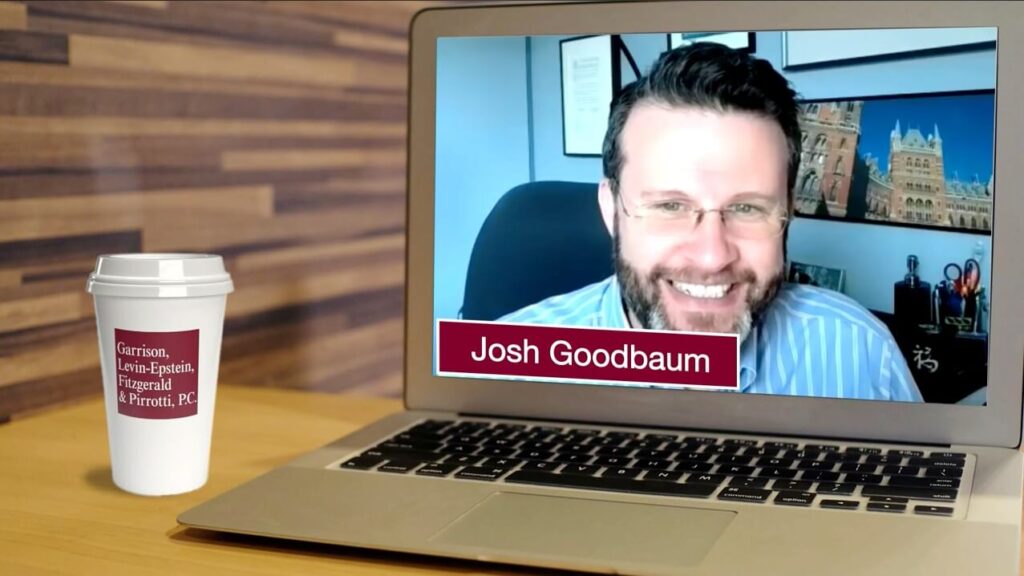Josh Goodbaum: Hi, Amanda.
Amanda DeMatteis: Hey Josh, what are we gonna talk about today?
Goodbaum: I want to talk about Connecticut Paid Leave, which is a wonderful benefit that employees have here in Connecticut. We’ve talked about it before in our videos. It includes the ability to get compensated if you have to take a leave because of your own health condition or the health condition of one of your family members. And if you don’t know anything about the basics of it or the instructions on how to do it, check out some of our other videos.
But what we want to talk about today is an interesting angle within that law that allows Connecticut employees potentially to apply for compensation if they can’t work even after they’ve already lost their jobs. Tell us about that.
DeMatteis: Yeah, we’re lucky to have this protection in Connecticut, Josh; you’re absolutely right. If you are watching this video and you’re questioning just the basics about the Connecticut Paid leave, take a look at some of our other videos, and we’ll talk about your eligibility, whether or not your employer is eligible, et cetera. Let’s assume, for the purposes of today’s conversation, that we are discussing an eligible employee and the employer is also eligible under Connecticut Paid Leave.
So, let’s say you lose your job, which could be a really traumatic experience. Maybe it’s a layoff, maybe it’s because of discrimination or retaliation, whatever it may be. And you find yourself in a really tough place from a mental health standpoint after the termination or loss of that position, and you can’t look for other work and therefore are prohibited from earning a living that you otherwise would have been able to if that termination did not occur. As long as you worked for a Connecticut eligible employer in the 12 weeks prior to your application for Connecticut Paid Leave, you could still be eligible.
So let’s break that down a little bit.
Say you’re terminated, and you fall into a deep depression. Three weeks after that termination, you say, “God, I can’t look for any work. I really can’t maintain my employment, maintain any source of income, and provide for my family.” As long as you are within 12 weeks from that date of termination, you can apply for CT Paid Leave, and you could potentially get those benefits retroactively.
So this is a really great piece of information that benefits Connecticut employees. Not only may you be eligible for Connecticut Paid Leave during the course of your employment, but you can also apply for a total of 12 weeks following the termination or the end of that employment with a Connecticut eligible employer.
If you have any other questions about this, please feel free to reach out. I hope that’s helpful.
Goodbaum: Such important information, Amanda. If you can’t work because of a layoff, think about applying for paid leave. And remember, of course, that if you apply for unemployment after a layoff, what you’re saying is that you can work, because you need to be looking for work if you’re going to receive unemployment. If you can’t work, you shouldn’t be applying for unemployment. Instead, you can apply for a Connecticut Paid Leave. Really important thing to know.
DeMatteis: Thanks so much.

